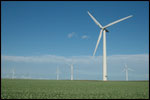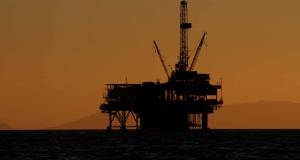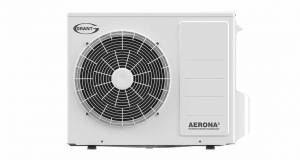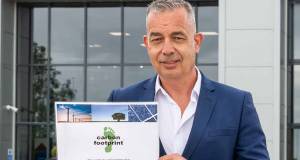- Electricity
- Posted
Europe's energy chiefs aim for carbon-neutral electricity by 2050

The heads of 61 power groups in the EU tonight have committed to achieving carbon-neutral electricity within an integrated power market by 2050.
The
heads of 61 power groups in the EU tonight have committed to achieving
carbon-neutral electricity within an integrated power market by 2050.
Their declaration, handed to Andris Piebalgs, EU energy commissioner, comes as Europe is under attack for lowering its ambitions to combat climate change, handing over leadership to the US and China and reneging on efforts to help the poorest developing countries adapt to a low-carbon economy.
The chief executives, including from the four main German groups, often seen as the principal culprits of faltering progress, made energy efficiency a cornerstone of climate change policy for the first time.
Lars Josefsson, president of Eurelectric, the industry association, and head of Swedish group Vattenfall, said the sector needed to invest €1.8tn (£1.7tn) between now and 2030 to replace ageing plants, develop "smart" grids, meet surging demand and deliver on environmental targets.
"I and my fellow CEOs have reiterated our belief that a competitive functioning market is the best means to deliver on this goal in a cost-effective manner while also ensuring the basic imperative of supply security – keeping the lights on and delivering reliable power to citizens and industry."
But the chief executives, including Ian Marchant from Scottish & Southern Energy, will anger green campaigners by insisting that nuclear power as well as new renewable energies is a core component of carbon-free supply. They also demanded clean fossil technologies, including carbon capture and storage (CCS) and highly efficient combined heat and power, as other core elements. They want simplified licensing procedures for new build, including nuclear.
In a clear nod to EU leaders, who begin their spring summit in Brussels today, they added that the scale of investment required a "stable, coherent and market-orientated investment framework".
EU governments are at loggerheads over a €5bn plan by the European Commission to spend unused EU budget lines on predominantly carbon-free energy, including CCS, offshore power grids and, until this week, the Nabucco gas pipeline from the Caspian Sea to western Europe.
It will be discussed at the summit over the next two days amid signs that it is unravelling and evidence that political indecision is driving down carbon prices. Eurelectric urged the leaders to work for a global approach to the challenge of mitigating greenhouse gases, increase support for R&D and CCS and buttress market-based electricity prices. Consumers have already been warnedthat "green" energy will require price rises of up to 20%.
Welcoming the commitment, Piebalgs said: "If we want to win the battle against climate change and decarbonise EU electricity supply, we need to change completely the way we think energy production, consumption and development."
The EU's current policy objectives include cutting greenhouse gas emissions by 20% and gaining 20% of primary energy from renewables by 2020. Emissions cuts would rise to 30% if a global post-Kyoto deal is achieved at December's Copenhagen climate change summit.
Arthouros Zervos, president of the European Wind Energy Association (EWEA), said in Marseille: "If the EU is to meet its CO2 reduction and renewables targets, improve security of supply and create real competition in the European power market, we need to extend our power grids and change the way we operate them.
"At current fuel prices, electricity production costs from a new wind farm, coal plant and gas station are more or less the same. If a truly interconnected European grid existed and power markets were effective, the uncertainty of volatile carbon and fuel prices would ensure that wind – which avoids these unknown quantities – would become the most cost-effective of the three. We need the power markets to ensure that future investors are fully exposed to fuel and carbon price risk."
The EWEA said EU power markets are biased towards traditional fuels because they are dominated by vertically-integrated power groups such as Germany's E.On and RWE, France's EDF and Italy's Enel. It demands that EU leaders proceed with plans to break up these big groups by forcing them to "unbundle" or sell off their transmission activities to open up the market.
(c) The Guardian






